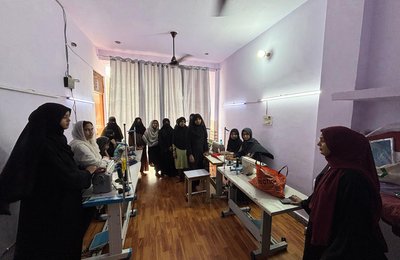Spearheaded by Hilary Clinton as his formidable Secretary of State, the administration has also shown a greater commitment to supporting nationally-led strategies, rather than imposing them from the outside. In multilateral institutions and in their bilateral relations, America has at last, alongside the UK and others, championed capacity-building in conflict-affected and fragile states, in the hope that they are able to implement their self-determined solutions to national problems – whether economic, political, social or environmental.
In this second term, with John Kerry as Clinton’s successor, it is important that President Obama builds upon this foundation and develops it further to ensure a durable recovery in countries affected by fragility and conflict. And they should expand this approach beyond the national, supporting calls for locally-led, inclusive budgets for regions, municipalities and grassroots communities.
Post-conflict peacebuilding and statebuilding efforts have an overt tendency to focus on bolstering institutions and the executive at a national level. Yet attempts to re-establish the disintegrated social contract between citizens and the state at a micro-level, during post-conflict reconstruction, can be just as important as those macro interventions. This is particularly true in states where central governance has never truly existed or has repeatedly failed to serve the needs of all the people.
In large countries with a vast geography, like DR Congo, the needs of those residing in capitals and urban areas will often be very different to the needs of those living in rural and remote villages. In Colombia, challenges to statebuilding in the aftermath of the civil war highlight this well. Populations can also be divided along ethnic, racial, linguistic, religious and political lines. A policy that may serve one identity well can exacerbate conflict and tension if others feel or are excluded. Experiences in the Balkans, Pakistan, Afghanistan and Iraq all add to the evidence of this impact.
So, it is imperative that post-conflict interventions target the local as well as the national. Ignoring in-country contexts, and failing to answer the needs of a nation as a whole, run the risk of creating a negative peace rather than a positive one. Discontent and frustration will simmer beneath the surface and are likely boil over into renewed conflict in the future. Recent events in Northern Ireland are a pertinent reminder that peacebuilding at a local level needs to continue in the long-term even as stronger central infrastructure is being developed.
While national institutions provide safeguards, local communities are the building blocks, the foundations of lasting peace. Supporting them means engaging with local actors, listening to their needs, and partnering with and supporting local organisations to implement solutions that beneficiaries desire. And locally-led programmes, if successful, can always be scaled up and replicated elsewhere.
The UK has committed to spend 30% of its official development assistance (ODA) budget on fragile and conflict-affected states by 2014-15. Here and elsewhere, I believe a further proportion of the budget should be further ring-fenced for expenditure on peacebuilding at a local level. Financial assistance and capacity-building at central government will only contribute to a positive, durable peace if its effects and benefits trickle down the system to local communities who, more often than not, have felt the full burden of fragility and conflict.
With four more years of US engagement in this international effort to reduce conflict through development now guaranteed, the time is right to deepen our interventions. There are no quick fixes but generations to come will feel the difference.
This article was also published on the Local First blog. Local First is an approach to international development that prioritises the views and leadership of people and organisations in the countries affected, over those of outsiders from the international community.








